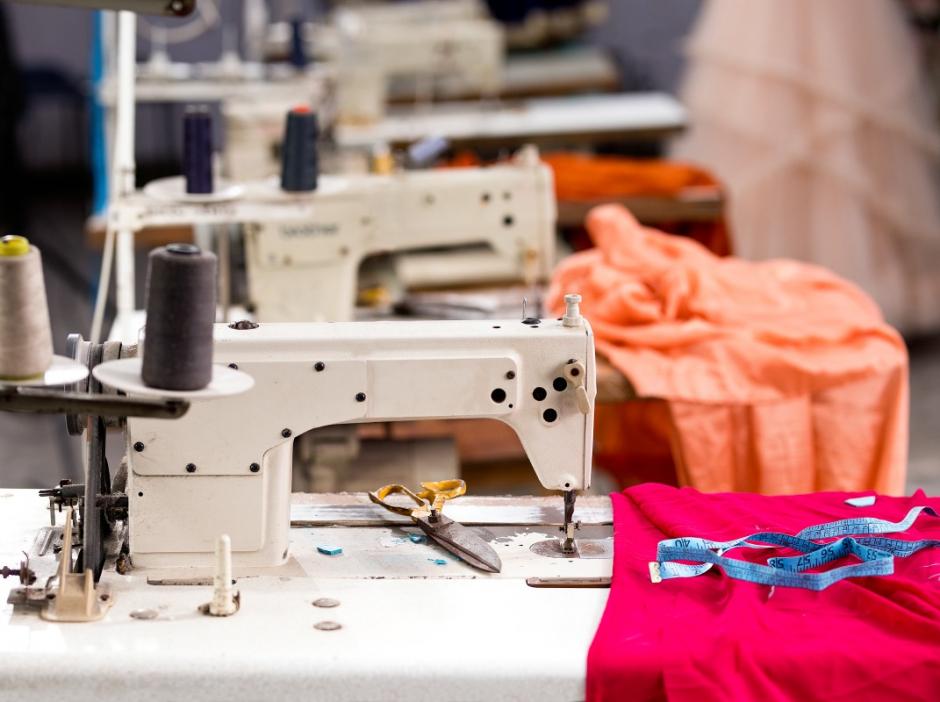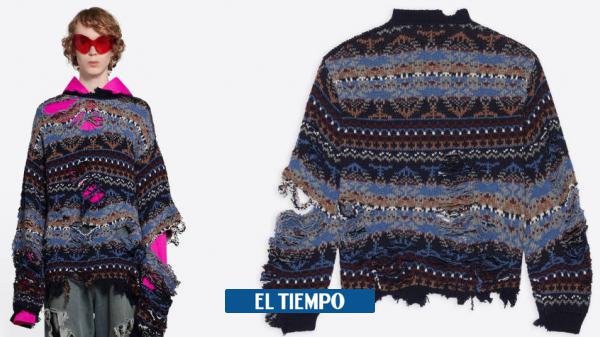Suppliers of Zara, Nike or H&M refuse to pay the minimum salary to their workers in southwest India
Factory workers in Karnataka – a state in southwestern India – are facing what appears to be the biggest wage theft in the fashion industry. There, one of the nuclei of the Indian clothing sector is located, with thousands of factories and hundreds of thousands of workers who produce clothes for international brands such as Nike, Zara, Puma or H&M. More than 400,000 employees at these Karnataka factories have not received the state's legal minimum wage since April 2020, according to data from the Worker Rights Consortium (WRC), an independent organization that advocates for workers' rights around the world. From the association, they estimate that the total amount of unpaid wages so far exceeds 44 million euros.
The Guardian newspaper has spoken to some of the workers in these factories to find out their situation. One of the employees has said that she only earns half of what she needs to cover basic living expenses, such as food or house rent. “If we had gotten the pay raise last year, we could have eaten vegetables at least a few times a month. Throughout this year, I have only fed my family with rice,” he says. “I tried to talk to those who run the factory administration, but they told me: ‘this is what we pay to work here. If you don't like it, you can leave."
From WRC, they emphasize that this is the biggest robbery they have ever seen in the fashion industry. "The children of the workers are going hungry so that the brands can earn money," says Scott Nova, executive director of WRC, for the British media. Despite the organization's persistent demands, the brands have not stepped in to ensure that the workers who make their garments are paid in accordance with Indian law.
Within the minimum wage policy, the variable part depends on how much the cost of living rises. In India, this variable dearth benefit was increased to Rs 417 per month in April 2020, which is equivalent to almost €4.90. This supplement has not been paid to workers since it was approved 20 months ago, so each employee is owed more than 8,300 rupees, about 98 euros. Taking into account that the minimum wage in India does not exceed 50 euros per month, it is a considerable figure.

The providers argue that the Ministry of Labor and Employment suspended this increase shortly after it was implemented and that a lawsuit related to the requirement to pay this increase was still pending in the Karnataka courts. However, in September 2020, the Karnataka High Court ruled that such suspension from the ministry was unlawful and that the minimum wage, including all arrears, must be paid to workers regardless of any further court proceedings.
How to Improve Poultry Drinking Water Quality with Acidificationhttps://t.co/lsQ3831ipW https://t.co/XrUuv80KBW
— Biomin India Tue May 07 10:59:28 +0000 2019
According to the WRC, this is the only industrial sector in Karnataka that does not comply with this court order. For its workers, not receiving a salary increase – given the increase in the cost of living – has had a devastating effect on their lives and those of their families, especially their children. One of them was even forced to leave her home because she could not pay the rent. “The salary increase we received each year did not cover our living costs, but it did help with things like food for the family and medicine. Working in clothing factories is very painful," laments the worker. "The brands that buy from my factory demand quality and that the clothes are shipped on time, but they don't mind what happens to me."
Nike, H&M, Puma, C&A, Gap, Tesco and Marks & Spencer, which are among the brands sourcing from factories in Karnataka, have said they are committed to paying the legal minimum wage and expect their suppliers to comply with the High Court order. “We have made it clear to our suppliers in Karnataka that they must pay workers the minimum wages required by law, including arrears,” H&M has stated. "If they don't, it will have serious business consequences." From Inditex, the company that owns Zara, they have highlighted that they are "contacting suppliers in the region to urge them to make the payments."
The WRC chief executive insists that "it's been almost two years since suppliers refused to pay minimum wage and brands have let this continue when they know they are the only ones with the power to stop this theft of general wages. Faced with this situation, he declares, they are allowing this "large-scale violation of human rights" to persist.
Tags: Textile companies|India|Nike|Textile|Work|Zara

























'The ambassador's daughter': everything about the premiere of the Nova series
18/03/2022A girl named Melek arrives in her living room and finds a dead man. Her mother, in the bathroom, cleans the blood from her clothes and her face, in addition, she keeps a knife along with the rest of the things in ...